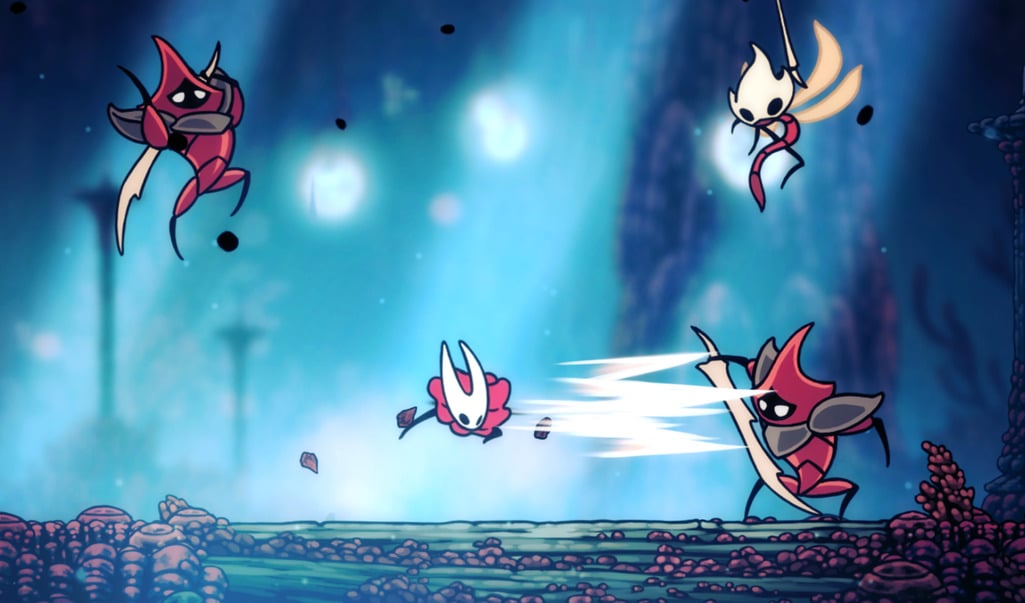Hollow Knight: Silksong is soaring on Steam. Just 24 hours after release it’s taken over the sales charts, hit a concurrent player peak of over 550,000, and received rave reviews from fans. But not in China. The long-awaited Metroidvania has instead been getting review-bombed by Chinese-language users on Steam who feel the translation this time around is much worse than that in the first Hollow Knight. The head of marketing for the game has already promised to put things right.
“To our Chinese speaking fans: We appreciate you letting us know about quality issues with the current Simplified Chinese translation of Hollow Knight: Silksong,” Matthew Griffin, in charge of publishing for the game, wrote on X. “We’ll be working to improve the translation over the coming weeks. Thanks for your feedback and support.” Despite the good news, his post has been inundated with comments and quote-tweets, many slamming the fact that the game launched without better quality checks for the Chinese localization.
According to localization expert Loek van Kooten, one of the main issues is that Silksong‘s evocative but concise writing has been turned into “a high-school drama club’s Elizabethan improv night” in the Chinese versions. He cites the following as an example of how the prose reads:
With nary a spirit nor thought shalt thou persist, bereft of mortal will, unbent, unswayed. With no lament nor tearful cry, only sorrow’s dirge to herald thine eternal woe. Born of gods and of the fathomless abyss, grasping heaven’s firmament in thine unworthy palm. Shackled to endless dream, tormented by pestilence and shadow, thy heart besieged by phantasmal demons. Thou art the chalice of destiny. Verily, thou art the Primordial Knight of Hollowness.
Van Kooten goes on to point out that one of two of Silksong‘s Chinese translators, listed as Hertzz Liu in the credits, had a habit of gloating about their involvement in the game and leaking small details about the development process over the summer prior to its release this week. The first Hollow Knight, on the other hand, had six Chinese translators, including one who had also worked on Stardew Valley.
no,you don’t hate localizer enough. we need translator,not a fanfic writer that doesn’t convey author’s original intention,the whole localization industry is a scam https://t.co/5Q8fBB6UiH
— NKRZE (@nekorize) September 5, 2025
Here’s a Valve-translated portion of one Steam review blasting the Chinese verison:
First, the god-awful Chinese translation that everyone is mocking. It’s not just pretentious, pseudo-artistic nonsense—the phrasing and even the localization of place names are an absolute mess. I don’t understand how Hollow Knight’s fantastic, quotable translation turned into this unsalvageable heap of garbage in Silksong. The utterly idiotic localization has even affected the game’s world-building and storytelling, forcing me to guess at character relationships and main plot points. Thankfully, the combat holds up, or else I’d be completely disgusted.
Silksong currently sits at a staggeringly low rating of just 50 percent out of 10,000 reviews in the simplified Chinese category. That would be enough to significantly stunt the game’s Steam rating worldwide, at least in the short-term, had Valve not implemented a recent change that segments Steam reviews by language for exactly this reason. Now review-bombing in one country for region-specific issues doesn’t bleed over into a game’s overall perception globally.
Unlike when Hollow Knight released eight years ago, Chinese language users now make up the largest group on Steam. While poor translations don’t hurt a game for anyone who’s not reliant on them, they can limit a game’s trajectory on the Valve-owned storefront. Somehow I ultimately don’t think that will be a problem for Silksong, especially once Team Cherry gets the Chinese translation sorted.

